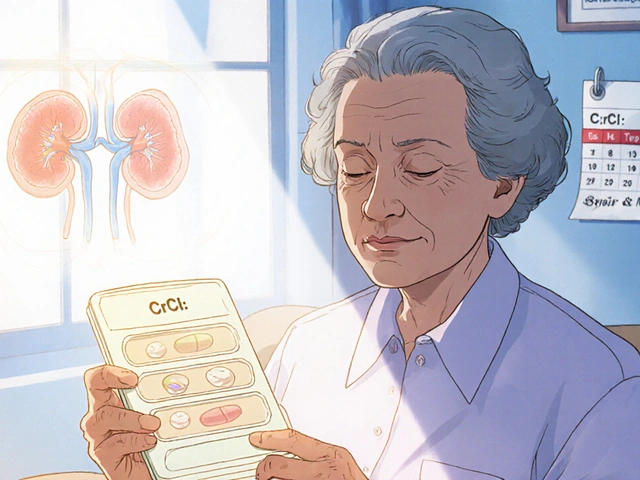Managing Alzheimer's is no picnic, and if you're a caregiver, you know the drill—endless balancing of responsibilities while trying to ensure your loved one stays safe and comfortable. But, have you ever considered adult day care as part of your strategy?
Honestly, these centers can be game-changers. They're not just places to drop off your loved one for a few hours; they are equipped with specialized activities and staff trained to handle various stages of dementia. And it's not just about keeping the patient occupied. It's about enriching their day with meaningful interactions and exercises.
Many caregivers find that adult day care brings a bit of normalcy back into a chaotic routine. It offers patients a place to socialize, a chance to engage in activities that can stimulate their mind, and even provides basic medical care when needed. For caregivers, it’s a moment to breathe, catch up on their own needs, or simply relax, knowing their loved one is in good hands.
- Understanding Alzheimer's and the Caregiver's Role
- What is Adult Day Care?
- Benefits for Patients
- Support for Caregivers
- Choosing the Right Center
- Integrating Adult Day Care into Your Care Plan
Understanding Alzheimer's and the Caregiver's Role
Alzheimer's is a progressive brain disease that damages memory and cognitive function. It's the most common cause of dementia, affecting around 6 million Americans. It's not just about forgetfulness. Over time, simple tasks become challenging, and personality changes can arise.
The role of a caregiver is all-embracing. Oftentimes a family member steps into this role, which can be both rewarding and stressful. Research from the National Institute on Aging reveals that caregivers spend roughly 24 hours a week on caregiving tasks, and this number can double as the disease progresses.
"Caregivers are the backbone of support for those with Alzheimer's," says Maria Carrillo, Ph.D., chief science officer of the Alzheimer's Association. "They provide critical assistance and help maintain quality of life for the patient."
Navigating Daily Challenges
Evolving with the disease is key. Tasks like bathing, dressing, and administration of medications are everyday challenges caregivers face. There's no one-size-fits-all solution, and flexibility becomes second nature.
- Stay organized with a daily schedule. Consistency helps both the patient and caregiver feel in control.
- Learn about communication strategies. Patients might struggle with verbal interaction, so patience and simplicity are essential.
- Routine health check-ups are vital. These can catch complications early, ensuring a better quality of life for your loved one.
Seeking Support
Being a caregiver doesn't mean you have to do it all alone. Finding local support groups or engaging in community resources, like adult day care centers, can make a significant difference. They not only provide respite but also offer tailored activities that leverage cognitive strengths.
Balancing care for yourself is crucial. The emotional toll can be high, leading to burnout if left unchecked. Don't hesitate to reach out for professional assistance when needed.
What is Adult Day Care?
So, you're trying to wrap your head around this whole adult day care thing—perfectly understandable. Think of it as a nurturing space that provides care and companionship during the day for older adults, particularly those with dementia or Alzheimer's. It's like hitting the pause button on your caregiving duties while ensuring a safe environment for your loved one.
These centers are staffed with trained professionals who understand how to engage folks with dementia. They focus on creating an enriching experience through structured social and recreational activities designed to improve cognitive function and bring some joy into their lives.
Types of Adult Day Care
There are generally three types of day care services:
- Social day care: Primarily focuses on social interaction and stimulating activities, often including music therapy, arts and crafts, and group discussions.
- Health-oriented day care: Offers medical services in addition to social activities, usually staffed with health professionals who can manage medications, physical therapies, and health monitoring.
- Specialized day care: Specifically designed for individuals with more advanced stages of Alzheimer's, offering targeted therapeutic activities suited to their needs.
A smart move when choosing a center is to check out their meal plans, transportation options, and hours of operation. Do they match your loved one's dietary needs? Will they pick up and drop off your loved one? These details might sound trivial but become life-savers in daily coordination.
Who Is It For?
Adult day care is ideal for older adults who can still enjoy some level of independence but require supervision throughout the day or participate in structured activities. It's also a relief for caregivers, providing them with necessary downtime or the opportunity to work.
Interestingly, studies have shown that these services can delay the move to long-term care facilities by offering a supportive environment that keeps the mind and body active. In short, they bring an invaluable sense of community and structure.
Benefits for Patients
When it comes to managing Alzheimer's, finding ways to enhance the day-to-day life of a loved one can seem like a daunting task. But the real beauty of adult day care is how it can transform and uplift the quality of life for patients.
Improved Social Interactions
For starters, the social aspect is a big winner. Many patients with Alzheimer's can become isolated as the disease progresses, but regular engagement at a day care promotes social interaction. Meeting new people, even casually chatting, can ward off feelings of loneliness and help maintain cognitive functions longer.
Structured Activities
Adult day care centers aren’t all talk; they’re action too! They offer structured activities specifically designed for dementia management. From art therapy to music sessions, and even gentle exercises, these activities are tailored to support cognitive stimulation and physical health. It's like a mini routine that patients can look forward to each day, which can be comforting and reassuring.
Access to Health Services
Let's not forget the health side of things. Many adult day care centers provide easy access to basic health services. Whether it’s medication management or nutritional meals, the centers ensure that patients get what they need throughout the day.
Emotional Well-Being
Patients often experience mood swings and anxiety, common in Alzheimer's. Thankfully, the interactions and activities in day care can help reduce agitation and promote a sense of belonging. It's all about creating a safe space with a predictable routine, which can do wonders for their emotional health.
Reliable Supervision
Finally, it's not just about the activities. The supervision in these centers is top-notch. Staff are trained to handle the distinct challenges presented by Alzheimer's, ensuring patients remain safe and well looked after throughout the day.

Support for Caregivers
Taking care of someone with Alzheimer's can be an all-consuming task, draining your emotional and physical energy. That's where adult day care steps in, acting as a lifeline for caregivers who need a break without sacrificing their loved one's care.
Guilt-Free Breaks
Many caregivers struggle with guilt when taking time for themselves. Adult day care centers provide a peace of mind by offering a safe, structured environment for loved ones, allowing caregivers to take time for errands, work, or simply rest. Remember, taking care of yourself is essential to effectively care for someone else.
Access to Support Networks
These centers often have resources for caregivers, ranging from support groups to educational sessions, so you're never left to navigate the complexities of dementia management alone. Sharing experiences and strategies with others in similar situations can be incredibly empowering.
Professional Help When You Need It
In many cases, adult day care centers provide access to professionals such as nurses or social workers. If you've got questions or concerns about your loved one's condition, these folks can be a goldmine of information.
Balancing Act
Maintaining balance between care duties and personal obligations becomes a bit easier with the help of adult day care. The structured schedule ensures your loved one is engaged and safe during the day, providing you with the flexibility to handle other responsibilities without constant worry.
| Reason | Benefit |
|---|---|
| Time Off | Reduces stress, increases productivity |
| Professional Support | Access to medical and caregiving advice |
| Community Engagement | Connect with other caregivers, share experiences |
In the grand scheme of things, adult day care isn't just about managing dementia; it's about supporting the whole family. By integrating these services into your care plan, you're not just helping your loved one live better—you’re giving yourself the space to be a more effective, happier caregiver.
Choosing the Right Center
Picking the right adult day care center can feel like a big decision, and rightly so. It’s about finding a place where your loved one's needs are not just met but truly understood. Here's how to go about it:
Consider Specialization
Not all centers are created equal. Some cater specifically to dementia or Alzheimer's patients, offering specialized programs that focus on memory care, cognitive activities, and more. Ask about the programs they offer and the experience of their staff in dealing with Alzheimer's.
Location and Transportation
Convenience matters. Consider a center that’s near your home or workplace. Some centers even provide transportation services, which can be a big plus, saving you time and hassle on busy days.
Visit and Observe
Before making a decision, take a tour of the center. Observe the interactions between staff and attendees. Does the atmosphere feel warm and welcoming? Are the spaces safe and clean? Trust your gut feeling during the visit.
Cost and Affordability
Crunching numbers is essential. Compare the costs of different centers. Will insurance cover any part of the expenses, or do they offer a sliding scale based on income? Knowing the financial side of things can help avoid stress later.
Personalize Your Choice
Lastly, think about what's crucial for your loved one. Do they thrive in smaller groups, or do they love being part of big social gatherings? Ensuring the center aligns with their personality and needs can greatly enhance their experience.
Check the Reviews
In today's digital age, reviews can be your best friend. Look for feedback from other families who've used the center. Positive reviews can offer peace of mind, while negative ones might highlight areas for concern.
Remember, finding the right center can offer immense relief and comfort for both you and your loved one. It's worth taking the time to get it just right.
Integrating Adult Day Care into Your Care Plan
Thinking about adding adult day care into your routine? It's a solid move, and here's how you can make it work seamlessly for everyone involved.
Evaluate Your Needs
First things first, assess what you and your loved one need most. Is it a structured daily routine, respite for yourself, or maybe professional oversight during the day? Identifying these helps clarify the type of adult day care services that fit best.
Research and Visit Centers
Make a shortlist of centers close to your area and schedule visits. During a visit, observe the staff's interaction with clients, ask about their experience with Alzheimer's, and check on the activities proposed. If possible, take your loved one along to see their reactions. Does the environment feel welcoming and safe?
Create a Routine
Consistency is key in managing Alzheimer's. Try to establish a routine that incorporates the day care schedule. Consistent drop-off and pick-up times can help patients settle faster into this new environment, reducing confusion.
Start Gradually
Dive in slowly. Start with a few hours a week and see how it goes. If everything feels right, you can gradually increase the time. This easing-in phase also allows your loved one to adjust without overwhelming them.
Keep Communication Open
Regular updates with the day care staff are vital. Discuss any behavioral changes or concerns you notice. They can give insights about your loved one's day and possibly suggest adjustments to the care plan.
Review and Adapt
Keep evaluating how well adult day care fits into your care strategy. Needs change over time, so be ready to adapt routines, switch centers, or modify your expectations as necessary.
| Day Care Activities | Benefits |
|---|---|
| Music Therapy | Enhances memory and mood |
| Cognitive Games | Stimulates brain function |
| Physical Exercise | Improves motor skills and health |
Remember, this isn't just a service; it's an extension of care that brings benefits to both you and your loved one. Embrace it as part of your journey in managing dementia.







Alan Kogosowski
July 17, 2025 AT 22:25Well, to begin with, I believe adult day care centers serve a crucial niche in Alzheimer's care that is often underappreciated in public discourse. These facilities not only provide structured activities tailored specifically to cognitive stimulation but also offer a setting where patients can maintain social bonds, which is incredibly important in slowing cognitive decline.
Moreover, the medical supervision aspect cannot be overstated. Many family members lack the expertise or time to monitor symptoms and medication adherence consistently, which these centers handle adeptly. There is an almost symbiotic balance that they achieve between care and engagement, which enhances quality of life far beyond what might be expected.
One might even argue that these centers relieve the emotional and logistical burden from caregivers, allowing them to recharge and thus offer better long-term care themselves. It’s a layered system that warrants more recognition and, frankly, more funding.
Ben Lee
July 20, 2025 AT 04:41I totally agree with the points made here. It's really incredible how adult day care centers fill the gap between full-time institutional care and caregiving at home. It’s not just about supervision, but about giving the individuals a sense of normalcy through activities and interactions.
In my experience, families often find immense relief knowing their loved ones are in a safe environment during the day. It’s something that restores balance in the home dynamic. Plus, these centers often provide resources or guidance for caregivers, which is so valuable.
Has anyone here noticed a tangible improvement in patients after consistent attendance at these centers? I feel like that would be interesting to discuss.
David Brice
July 21, 2025 AT 14:51Here’s the reality, folks. Alzheimer’s care is tremendously complex, and adult day care centers can be a godsend, but they’re definitely not a cure-all. From a professional standpoint, the best outcomes come from integrated care plans combining these centers with family support and medical management.
Also, caregivers must be actively educated to understand the progression and behavioral symptoms of dementia. These centers help by offering that education sometimes. The more informed a caregiver is, the better the home environment will be for the patient.
If you’re feeling overwhelmed, I suggest reaching out to such facilities and seeing what resources they offer beyond just daily care. Knowledge is power in this struggle.
Zachary Schroer
July 24, 2025 AT 00:41Ugh, adult day care is absolutely NOT the miracle solution they make it out to be.
Honestly, it’s just a way to shunt responsibility away from families while pretending society is ‘helping.’ The real problems of Alzheimer’s go way deeper than structured activities and medical check-ins. This is just a bandaid on a systemic failure in healthcare and elder support.
Let’s not pretend this sort of care magically rejuvenates or fundamentally improves quality of life in a meaningful way. It might help the caregivers’ peace of mind, sure, but at what cost? More importantly, there are no easy fixes here—only a long, slow, and painful descent that society largely ignores.
💀🤷♂️Stacy Whitman
July 26, 2025 AT 15:25From a national perspective, we really need to focus on expanding access to these services in underserved areas. I’ve seen firsthand how some families just don’t have these options available due to geographic or economic barriers. That discrepancy only widens inequities in Alzheimer’s care.
We must push for policies that support funding of adult day care programs across the country. These centers aren’t just a convenience—they’re essential infrastructure for managing a growing public health crisis as our population ages.
It’s high time we treat this issue with the urgency and scale it deserves rather than leaving it as an afterthought.
Kim and Lin
July 28, 2025 AT 17:45This is such an important topic, and I’m glad it’s getting attention here. Adult day care can literally be a lifeline for families coping with Alzheimer’s. I’ve witnessed the relief on caregivers' faces when they know their loved ones are engaged and safe during the day.
:) The social interaction alone can uplift patients’ moods and slow emotional decline, which is something rarely emphasized in clinical conversations. It's not just medical supervision; it’s about nurturing the person holistically.
Kim and I have explored a few centers in our area and found the staff to be incredibly supportive, providing both care and companionship. Really makes a difference.
Kemari Nielson
July 31, 2025 AT 16:48While I appreciate the merits discussed, I want to underscore the importance of precise medical oversight in such settings. Alzheimer’s symptoms can vary dramatically day to day, and subtle changes can be missed by non-specialized staff.
It’s imperative these centers recruit trained personnel and maintain rigorous standards for patient monitoring. Otherwise, the risk of symptom exacerbation or medication errors could increase.
Does anyone have experience with accreditation or certification programs that ensure these standards are met?
Steve Helsel
August 3, 2025 AT 03:55Honestly, I think some people overhype these centers. Sure, they’re useful, but let’s not pretend they’re some big breakthrough. In some cases, they’re just babysitting for adults.
That said, if it helps families cope better and reduces burn-out, I guess that’s something. Still, I’d want more data on how much cognitive benefit the patients actually get.
Anyone seen any solid studies on adult day care outcomes?
Steve Moody
August 4, 2025 AT 10:11Oh dear, the grammar police will have a field day here but let me just say this: adult day care has often been misunderstood and underestimated! These centers are meticulously designed with therapeutic frameworks and not simply play areas for the elderly.
There’s a definite art and science to creating daily programs that align with neurocognitive therapies. To dismiss them as merely ‘babysitting’ is to ignore the subtle yet critical interventions that staff provide, from cognitive reinforcement to emotional support. The nuanced difference matters tremendously.
Engagement in such environments has been shown to slow decline in some longitudinal analyses—if not outright improve quality of life, which is the main goal!
Adrian Hernandez
August 10, 2025 AT 14:11Feels like we’re all missing a darker angle here. Have you ever considered that some adult day care centers might be cutting corners due to funding issues? That could mean insufficient staff, subpar medical oversight, or even concealed neglect. Big pharma and government agencies don't exactly want the truth out.
Not trying to be paranoid, but when vulnerable Alzheimer’s patients are involved, we should be extremely vigilant. Have any of you heard about investigations or whistleblower reports on these centers’ quality standards?
It’s easy to applaud the concept in theory but harder to ensure real-world implementation aligns with ethics and safety.
duncan hines
August 12, 2025 AT 19:18Let me tell you, I’ve seen some horrible adult day care setups. The so-called 'structured activities' sometimes feel more like monotonous routines, barely holding any therapeutic value.
Plus, a lot of the time the staff seem overwhelmed and undertrained which makes you question the actual benefits versus the expenses involved. Families get suckered into believing these places are gold standards without any transparency or accountability.
One thing we really need is stricter regulation and real reviews from other family members who have experienced care there. Otherwise, we’re just paying for a facade.